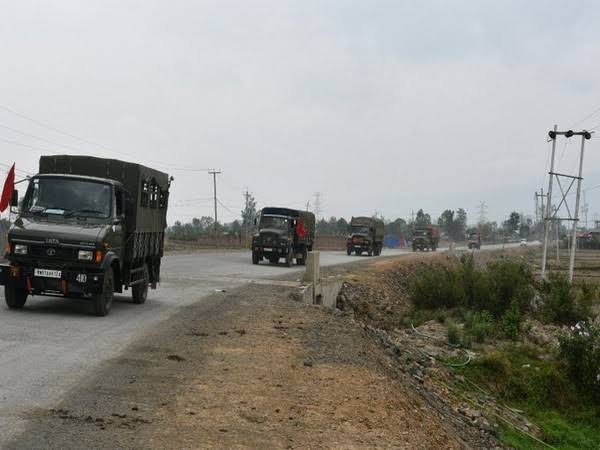The unrest in the northeastern state of Manipur appears to be unending, with many more incidents being reported on Saturday. The situation, which has been worsening by the day, is posing a big challenge for both the state government and the Centre, and unless immediate steps are taken, things could get completely out of hand. The genesis of this violence can be traced to the demand by the Meitei people, who constitute the majority, that they too should be granted a Scheduled Tribe status under the Constitution which would bring them at par with the privileges enjoyed by other tribal populations. This has been resented by the tribals, leading to clashes between the Meitei and the Kuki communities to begin with. The worst affected is the Churachandpur district bordering the Imphal valley.
Union Home Minister Amit Shah recently visited the region and held several meetings with the representatives of various sections. He also urged the residents to surrender their arms, failing which the security forces would take strict action. A peace committee was constituted to help the authorities. However, nothing appears to be working and incidents of violence continue to be reported on a daily basis. Critics of the Union government and the state administration are of the view that a lack of understanding of the ground realities has led to the escalation of violence, and the security forces find themselves helpless in the face of the complexities of the matter. The sharp differences, which are of ethnic, political and social nature, seem to be irreconcilable. Leading citizens of the region have appealed to the people but the reasons for the conflict seem to be extremely grim. While it is true that every situation can be resolved through dialogue and discussions, but the approach of the authorities is being perceived to be anything but objective. There is also a demand that the Prime Minister must intervene and step in to ensure that normality returns and no further loss of lives and property takes place. What is alarming is that the unrest, which is so far confined to Manipur, could spread elsewhere in the Northeast as well. This would not only threaten the security of the country but also embolden unscrupulous neighbours to instigate the mischievous elements. The RSS, which has a sizable presence in the Northeast, is equally concerned and is putting pressure on the Centre to help resolve the issue. However, the multiple dimensions of the matter are not making things easier.
Many old veterans believe that the Centre should have reconstituted a National Integration Council, which used to be a part of successive governments since 1961 and served as a forum to discuss important matters related to the integrity of the country, from time to time. The Prime Minister being the Chairman of the NIC would also receive adequate and accurate feedback on the emerging situations from members of the civil society who were handpicked for the body. The NIC could have not only helped in the present crisis of Manipur, but could have also helped the government in understanding issues related to several other states as well, which feature the fallout of the diversities that exist in society. Manipur is at the crossroads and this continuing conflict between the communities has led to a complete breakdown of the law and order apparatus there. Many former Army personnel including a retired General have through their posts expressed their concern and anguish, while cautioning the government on what could follow, if adequate steps are not put in place.
The critics of the government maintain that those entrusted with the task have not been able to comprehend the complexi- ties involved and therefore are initiating steps that have so far only contributed to the worsening of the situation. On its part, the Centre and the State administration maintain that anyone found disturbing the peace and tranquility would be strictly dealt with. The reality is that the matter is far beyond what it is being projected as. The security aspects of the emerging scenario are indeed worrying, but what is more important is the community relations breakdown which could have adverse and frightening ramifications. With Kashmir always on the edge despite some
strong steps taken by the Centre, and Punjab being threatened by separatists settled in other countries, the Manipur issue cannot be taken lightly under any circumstances.
The country cannot burn, and no degree of politics from any side can help in restoring normality, once things cross the limits. These are divisive times we all live in and politics has become an overriding priority for our leaders. Manipur needs a balm to heal and an inclusive approach. People there have to be re-assured that the rest of the country cares for them, and grievances of all sections would be addressed and taken care of.
The issue cannot be left pending and at the mercy of bureaucrats and police officers. The Indian Army has always lived up to the expectations of the countrymen but cannot be involved in duties which should have been done by others. Yes, if required, as usual our brave officers and jawans shall do what is expected of them. The solution is in negotiations and understanding. There are social, ethnic and political dimensions which pose a challenge. Looking at the issues through the prism of party interests was not going to help in any way. The Centre must act judiciously. Between us.

